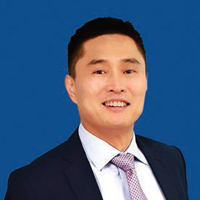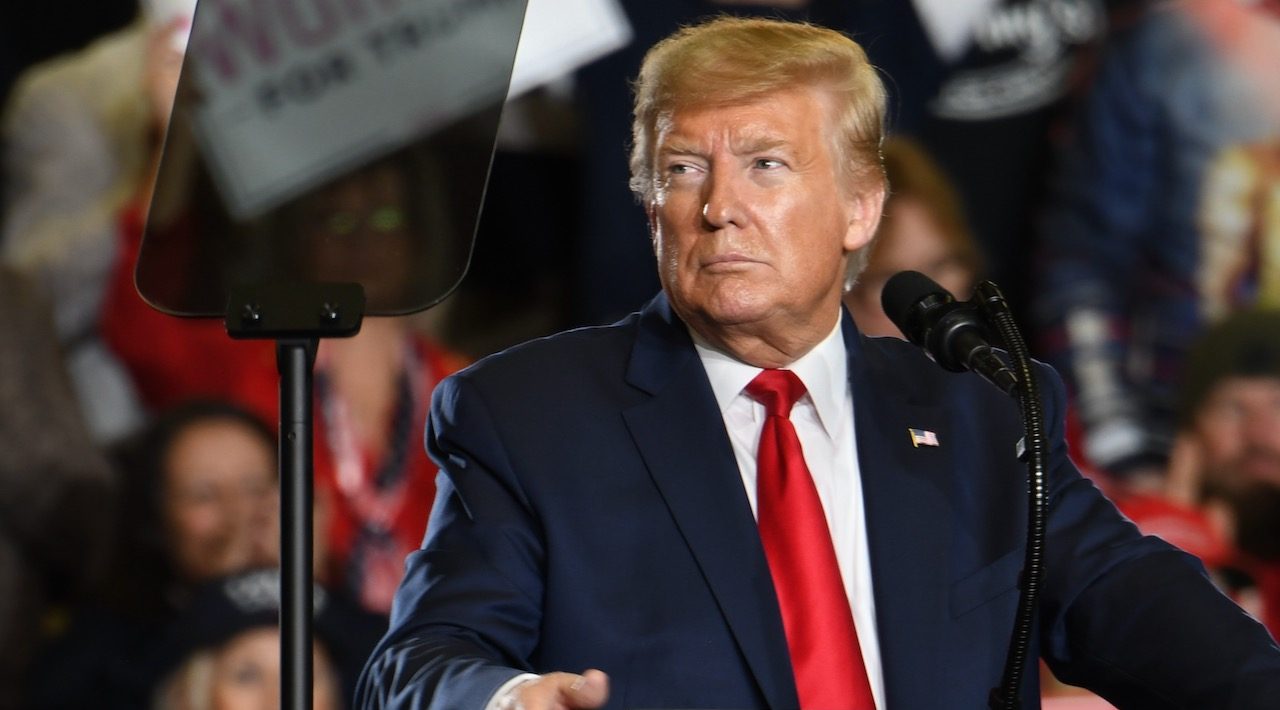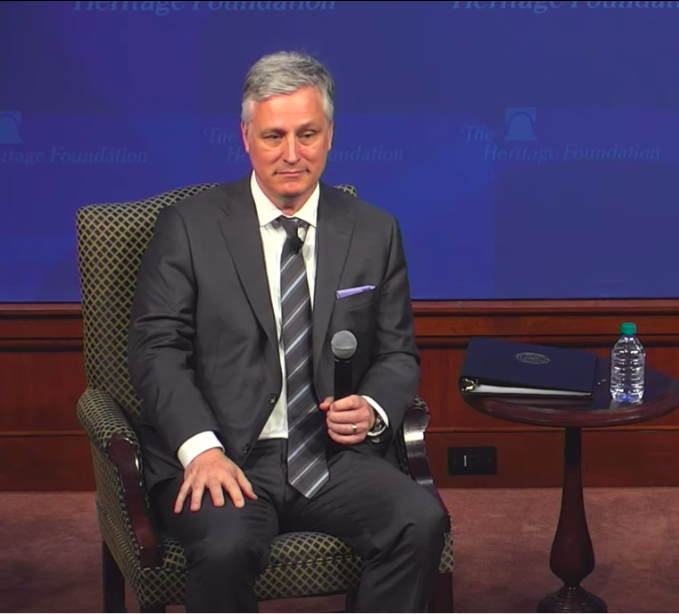
Yu Ben Meng.
CalPERS is Heavily Invested in Chinese Companies
As NBA frets over PRoC, Yu Ben Meng bets big with dollars from America’s largest pension fund
By Edward Ring, October 10, 2019 9:40 am

On October 1st, 2019, the People’s Republic of China celebrated its 70th anniversary. The centerpiece of their festivities was a massive military parade down the streets of Beijing, and the centerpiece of that parade was China’s newest intercontinental ballistic missile, the Dongfeng-41. This missile travels at a speed of Mach 25, carries multiple nuclear warheads, and can reach the United States in under 30 minutes.
California’s public employees should know that their retirement funds have invested in companies controlled by the Chinese military, which manufacture parts for the DF-41 missile, along with a range of aircraft, unmanned aircraft systems, and airborne weapons.
For that matter, these pension funds not only invest in Chinese companies (and index funds, tracked by mutual funds, that are heavily weighted with Chinese companies) directly involved in manufacturing military equipment and surveillance equipment, they also invest in Chinese companies involved directly or indirectly in human rights, labor rights, and environmental protection violations all over the world.
California’s largest public employee pension fund, CalPERS, provides a case in point. Despite its quest for the elusive 7 percent annual return, CalPERS nonetheless foregoes investments in Iran, Sudan, assault rifles, tobacco products, and thermal coal. Yet CalPERS continues to invest in Chinese companies.
A review of what is still the most recent report on CalPERS investments, dated 6/30/2018, reveals there is no summary wherein international investments are subtotaled by country. A keyword search under “China” turns up 172 companies, partnerships, etc., nearly all of which (by virtue of their name) are probably based in China, with a total market value of $3.1 billion. This is obviously understating the total, since, for example, one of the listed companies, “Bank of Chongqing Co Ltd,” is almost certainly a Chinese company, but along with many others, is not within that total.
Roger Robinson, President and CEO of RWR Advisory Group, a Washington-based risk consultancy, is an expert on U.S. investments in China. When reached for comment, he posed the following question, “Why would CalPERS hold in their investment portfolio Chinese and Russian companies either actively, or passively via index providers, that have been sanctioned by the U.S.?”
Robinson, who earlier served as chairman of the congressional U.S./China Economic and Security Review Commission, elaborated on the risks facing pension funds that invest in China. “Doesn’t being sanctioned represent an asymmetric material risk to the share values and corporate reputations of these companies, and if so, are California’s public employees being properly protected as investors?”
Concern about U.S. investment in China is spreading. Earlier this year, according to a press release from his office, U.S. Senator Marco Rubio (R, Florida) “requested information from MSCI, Inc. (MSCI) regarding the company’s controversial decision to add Chinese companies in its equity indexes. MSCI indexes are listed on U.S. stock exchanges and available to retail investors. The MSCI Emerging Market Index includes 24 countries with emerging economies, including China. Specifically, Rubio requested information regarding whether MSCI examined the potential for funding Chinese companies involved in the Chinese government and Communist Party’s military, espionage, human rights violations.”
Because mutual funds that collectively manage direct investments totaling several trillion dollars will mirror the selection and weighting of companies in the MSCI index, the decision to increase their holdings in Chinese companies offers a tangible benefit to those companies. It translates directly into increased U.S. investment into China by any pension system that includes MSCI tracking funds in their portfolios.
In response to a request for the total value of CalPERS investments in Chinese companies, CalPERS offed only an innocuous non-reply: “CalPERS is a global investor, with holdings in approximately 49 countries. Our Annual Investment Report reflects all investments at the end of the most recent fiscal year.”
While there is a legitimate moral argument for constructive engagement governing investment policies, even with a nation as problematic as China, that argument becomes strained when examining certain companies that are part of the CalPERS investment portfolio.
A blistering report published by Bloomberg Businessweek in Sept. 2018 highlights abuses committed by China Communications Construction Co., which CalPERS owned shares in as of 6/30/2018. The in-depth article recounts fraudulent bidding practices, corruption, environmental violations, mistreatment of workers, national security concerns, and even a role in building Chinese military bases on reefs in disputed areas of the South China Sea. Bloomberg writes, “There’s no shortage of companies, including American ones, that have been accused of bribery and environmental damage when operating abroad. Yet the number and scope of allegations involving CCCC set it apart.”
Another Chinese company in which CalPERS owns shares is China Aerospace International Holding, a subsidiary of China Aerospace Science and Technology Corp., which is operated by the People’s Liberation Army, and China Unicom, a company which, according to the Washington Post, helped build and operate North Korea’s internet network.
When contacted regarding its Chinese holdings, the following response came from CalPERS: “CalPERS has a fiduciary duty to ensure retirement benefits for our members after a career in public service. To that end, we will pursue and explore all legal investments that help us further that goal.”
While investing in China remains legal, these investments, at the very least, challenge CalPERS divestment principles. On page 15 of their Total Fund Investment Policy, human rights violations are an important focus.
When asked about how ongoing and escalating human rights violations by the Chinese regime in Xinjiang, Tibet, Inner Mongolia, Hong Kong, and within Central China could be reconciled with their divestment principles, the response from CalPERS was “CalPERS believes engagement with the companies we own is the most fruitful way to enact change. In limited cases, divestment decisions have been mandated by legislative action and by the Board in accordance with our policies.”
A troubling article published in Epoch Times in July 2019 exposed allegedly deep ties between the Chinese regime and the Chief Investment Officer at CalPERS, Yu Ben Meng. The article states that Meng’s actions as deputy CIO at China’s State Administration of Foreign Exchange (SAFE), which he occupied from 2015-2018, “have provoked controversy about the operations of the largest public retirement fund in the United States.”
SAFE is responsible for managing over $3 trillion in foreign reserves controlled by China. According to Investopedia, “Its mandate includes the study and implementation of policy measures for the gradual advancement of the convertibility of the renminbi (CNY), China’s official currency.” Apart from the Chinese military, it’s hard to imagine an organization more central to the global strategy of the Chinese regime than SAFE. Meng’s role as deputy CIO with SAFE almost certainly put him in regular contact with the most powerful people in China.
CalPERS did not react favorably to a question about Meng’s role with SAFE. When asked “Is it plausible to assume that when the Chinese hired Mr. Meng to occupy a high ranking position with SAFE from 2015-2018, that the Chinese government relied on his loyalty to the Chinese regime,” the response was:
“Your suggestion is patently absurd, and frankly, offensive. Ben Meng is a United States citizen born in China. He is globally respected investor, serves as a member of the CFA Institute’s Future of Finance Advisory Council, and is an associate editor for the Journal of Investment Management. Mr. Meng has a Ph.D. from University of California, Davis. In addition, he not only has master’s degree in financial engineering from University of California, Berkeley, but has also taught at the Haas School of Business where he was the recipient of the Cheit Award for Excellence in Teaching. Mr. Meng was hired by CalPERS after a rigorous recruitment for the CIO position and was found to be the most qualified and best-positioned candidate to lead the investment office and to help ensure the security and sustainability of the CalPERS fund.”
This is clearly a touchy subject. But what happens if constructive engagement with China fails? What if the momentum of history finds the United States in another cold war, this time with China?
Here, quoted from People’s Daily (using Google translator), is Meng’s reaction in 2017 to working again in his native China, after moving to the U.S. at age 25, “In a person’s life, if there is an opportunity to work for the motherland, this responsibility and honor is unmatched by anything.”
This Chinese “motherland,” as reported earlier this month by NPR, is now “The U.S.’s top intelligence threat.”
Nathan Yu, an investigative reporter for Epoch Times who has covered communist China for years, had this to say when asked if Yu Ben Meng might have a conflict of interest as chief investment officer of CalPERS. “He was part of the Thousand Talent Plan which is operated by the Chinese regime, but we don’t have proof that he has ties to the Chinese Communist Party other than what is available to the public.” As reported in June 2018 by the South China Morning Post, “China’s ‘Thousand Talents’ programme to tap into its citizens educated or employed in the US is a key part of multi-pronged efforts to transfer, replicate and eventually overtake US military and commercial technology, according to US intelligence officials.”
CalPERS did not respond to multiple follow up requests to disclose whether or not Yu Ben Meng has ever received a security clearance from the Chinese regime, or was ever a member of the Chinese communist party. In a follow-up email, their statement read “We have no additional comments, other than what we’ve said: Ben is a U.S. citizen and an investor respected globally for his skill and integrity.”
Yu elaborated on the risks of investing in China, highlighting first a financial hazard. “There are so many uncertainties when you go to China to invest. Most investors have not thought through the circumstances in China. It is a country without any transparency. A country that puts the communist party above the law. If there is ever serious instability going on in China against the ruling communist party they will use whatever means available to control the investments and financial markets. If anything like that happens it is a big risk to all the investments from the US in China.”
On the moral hazard of investing in China, Yu had this to say. “Of course it empowers the Chinese regime to have the money flowing in. The investment from the US to China empowers the Chinese regime and helps the regime to continue its human rights violations and persecution of religious groups. Investors really need to think about the values behind their investments. When Americans invest in China it violates our values and empowers the values we’re against – we empower the forces against transparency and rights of personal happiness. The Chinese regime has no respect for the right to pursue happiness.”
An August 2019 article in the Atlantic offers a sobering assessment of China’s intensifying espionage offensive against the United States. But the writer concludes with a caution against overreacting, pointing out “China is both a rival and a top trade partner. The economic and research relationship between the two countries benefits them both. At the same time, Chinese immigrants and visitors to America risk being unfairly targeted if U.S. officials fail to find the right balance.”
The challenges and controversy facing CalPERS is certainly bigger than who they’ve hired to be their CIO. There are gaping contradictions in their investment policies, which exclude nations like Iran and Sudan, yet favor nations like China that pose a far greater threat to the security of the United States and are just as repressive to their citizens.
The risks and hazards of U.S. pension funds investing in Chinese companies, directly or indirectly, is not going away. In August of this year, U.S. Senator Jeanne Shaheen (D, New Hampshire), joined with Senator Rubio in a bipartisan effort to pressure the Federal Retirement Thrift Investment Board, which manages pension assets for federal employees, to “reverse a decision that is set to channel billions of US dollars into funding Chinese companies that they say support Beijing’s military, espionage and domestic security efforts.”
With CalPERS unwilling to make Mr. Meng available for an interview, questions remain that are worth asking of him and his deputies in the CalPERS investment office: When are you going invest tens of billions in equity positions in California’s infrastructure projects? When are you going to accept lower rates of return, so you don’t have to chase emerging markets that include China, which is arguably the biggest security threat the United States has ever faced? And when are California’s public sector unions, to whom you answer, going to establish investment rules that benefit an American “belt and road” initiative, instead of furthering the strategic objectives of a murderous regime halfway around the world?
- Ringside: What Will California Gas Prices Do in 2026? - February 19, 2026
- Ringside: Large Scale Desalination Belongs in California’s Water Strategy - February 12, 2026
- Governor Newsom: Turn Up the Delta Pumps! - February 11, 2026





They will just blow up California, and kill all the retirees, and keep the funds.
The general CA citizenry has no idea that the Chinese Communist government has fully infiltrated our State of California government operations. I am a California born American citizen who had a very successful two decade California state government career. I reported the Chinese National Chinese government operators in our state government, who are stealing our information, to various government oversight entities (they also worked for the Chinese government pursuant to their resumes). The Chinese Nationals discovered my reporting and fired me. In short, the Chinese Communist government unlawfully fired a United States citizen from his California state job—wow! Anyone interested in more information on this, please leave a comment here with contact information and I will contact you.
I’m grateful for this info. We are in truth already at war with China. As an American and veteran I’m outraged that my cal arts money is being used to arm our enemy
Paul,
I am interested in finding out more information on this issue.
CB
Let’s not forget that the former Chinese National UCLA professor, Yi-Chi Shih, that was recently arrested for espionage working for China against the United States, also, was smart enough to become a naturalized US citizen after working for the Chinese Communist government. These Chinese government operations are smart and very sneaky.
So, Feinstein has a Chinese spy working as her assistant, this guy is managing CalPERS retirement funds and we’re not supposed to believe that the entire CA government might be an extension arm of the ChiComs???
At least it explains some of the attitudes & actions of many of our Democrat legislators, who are probably being paid handsomely like Joe Biden, by outside agencies that are openly hostile to the USA.
God Bless Donald J. Trump !!!
Thank you Mr. Ring for exposing this fifth column infiltration of CA government.
Funny that CA refuses to invest in American oil but readily supports the oppressive communist Chinese war machine. CA is a shithole, and an evil one at that.
What about CalSTRS ? Are they also invested heavily in China ?
THIS IS EXACTLY WHAT DONALD TRUMP IS TALKING ABOUT AND GAVIN NEWSOM AND YU BEN MENG AND THE DEMOCRATES ARE IN ON THIS CIPHELING OF HARDWORKING AMERICANS MONEY! ALSO THE DEMOCRATES GOING BACK FIFTY OR SO YEARS AGO!